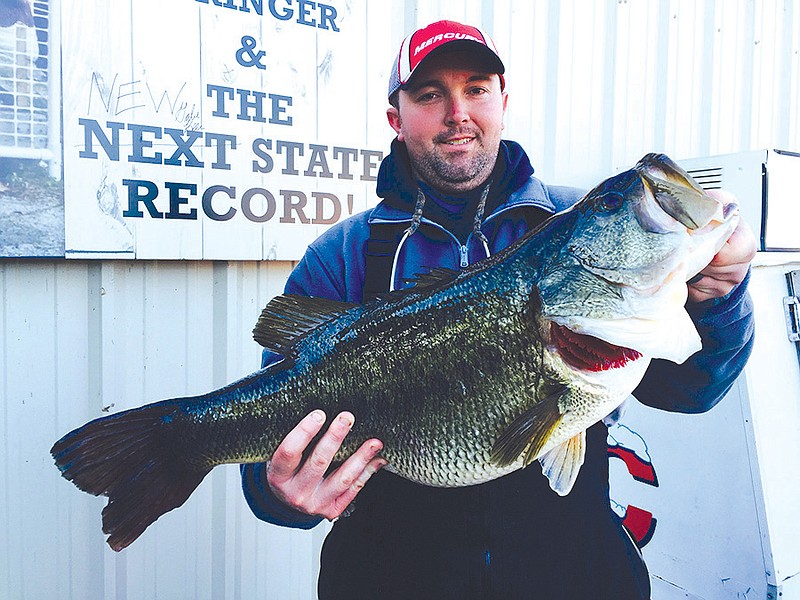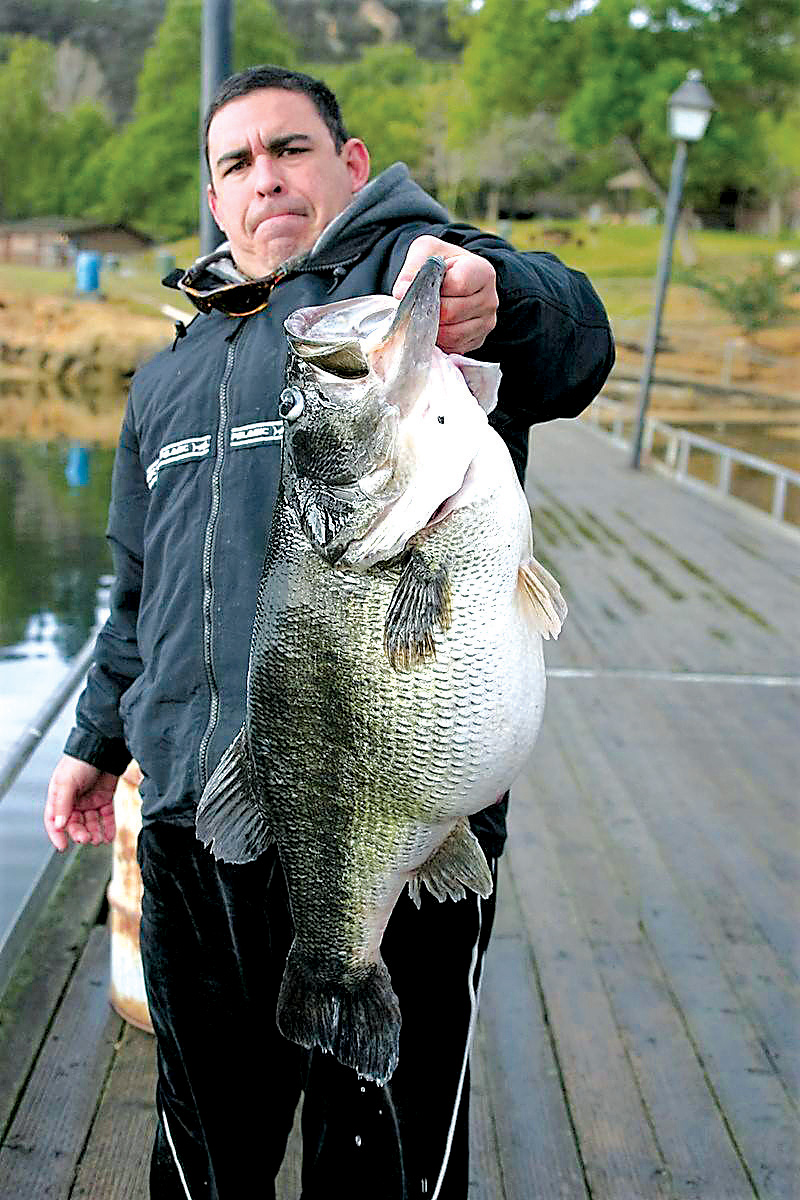On Feb. 13, 2015, Caryville angler Gabe Keen caught a 15-pound, 3-ounce largemouth bass fishing out of Chester Frost Park on Chickamauga Lake. That monster fish broke a state record that had stood for more than 60 years. It was the fish of a lifetime for almost any angler, but not necessarily for every angler.
In a sport where most people never achieve the benchmark of catching a 10-pounder, there is a subset of anglers who specifically target giant largemouth bass with success. These anglers repeatedly catch fish that weigh into the teens, and their achievements are documented in big-bass lists for various states. The weights increase even into the 20-pound range in places like southern California and Florida, where a long warm season allows for exceptional growth.
It is not a coincidence that some of the names near the top of these lists appear more than once.
Keen is obviously an accomplished angler. He fishes tournaments, guides, and coaches Campbell County High School's fishing team. But the tactics that win tournaments - and those that make for a fun day of fishing - are different from those employed by serious trophy bass hunters.
Tournament anglers seek the heaviest five fish they can boat within the competition's time limit. Trophy anglers are looking for just one fish. Luck is never the primary factor in their success, and they might spend weeks, months or even years fishing for that one bite. It's not a stretch to call this kind of fishing obsessive.
Here are some of the key elements of success.
LOCATION
It was no surprise that Chickamauga produced the new state record. The lake has become a big-bass factory thanks to the right forage and habitat and the Tennessee Wildlife Resources Agency's stockings of Florida largemouths to mix genes with the existing northern largemouth population.
However, large reservoirs are not generally the easiest places to catch giant bass. There's just too much water for an angler to cover.
One older South Georgia gentleman (he prefers to remain unnamed) has caught countless 10-pounders and several fish that weigh in the mid-teens. His methodology is proven. He lives where the growing season is long, and he fishes where large fish are accessible.
Instead of targeting famous and therefore heavily pressured waters known for large bass, he spends time with maps and on backroads seeking out-of-the-way lakes and ponds. These backwaters are often connected by streams and rivers to waters known for producing lunkers.
Upon getting landowner permission, it takes him a couple of trips to determine if he's found the right mix of depth, water flow, vegetation and forage to produce monster bass. Growth rates of fish vary widely depending on where they live. If a waterbody doesn't have the right combination of variables, it will never produce large bass. In lakes with just the right conditions, individual bass might reach 10 pounds in 7-10 years.
Private fishing lakes managed for large bass with fertilization, controlled harvest and supplemental forage are absolutely good places to catch the fish of a lifetime, but this gentleman is looking for something wilder. He admits it's a pipe dream, but he hopes to someday find the "holy grail," a fish larger than George Perry's 22-pound, 4-ounce world record.
That record, caught from an oxbow lake of South Georgia's Ocmulgee River, has stood since 1932. Promising millions of dollars in reward money and potential sponsorships, it is the most sought-after record in all of fishing. It was tied in 2009 by angler Manabu Kurita fishing Japan's Lake Biwa.
Our South Georgia gentleman reasons that if a fish approaching that size lived in a managed pond, the owners would know about it and wouldn't allow anyone else to fish for it. He's counting on nature to produce his large bass, and if a pond doesn't have what he's looking for, he moves on. If he sees what he likes, he fishes hard, often at night and often concentrating on just one point or drop-off where the biggest fish in the lake is likely to be. The strategy is to sit quietly for hours at a time dangling live bait, such as a large gizzard shad. Which brings us to
TACTICS
Exceptionally large bass are those individuals in a population that are most effective at taking in more energy than they expend. By the time a largemouth approaches the 10-pound range, it has become a master of ambush and prefers large, infrequent meals. Big bass are lazy. They do not like to chase food. The biggest bass in a lake will lay claim to the best holding water, where cover and water conditions offer comfort and safety and where forage is readily available.
Finding that magic spot is the key to our South Georgia gentleman's strategy. Other trophy hunters have the luxury of seeing the fish they are after. At a small 69-acre southern California reservoir called Dixon Lake, Mac Weakley and Jed Dickerson spent years pursuing the world record and an especially promising fish named "Dottie."
The two anglers targeted Dottie by looking for her in the ultra-clear water of Dixon Lake. When they saw her, they would throw cast after cast, bouncing an 8- to 15-inch-long swimbait along the bottom to mimic the trout that are the main forage at Dixon. They caught her twice between 2003 and 2006. The second time, she weighed more than 25 pounds. But Weakley foul-hooked Dottie instead of hooking her in the mouth. He released her without certifying her weight, thinking the foul-hook would disqualify her as a world record.
Although there are not many fisheries with both huge bass and the clarity of Dixon Lake, sight fishing is possible at most lakes when big females move shallow in spring to make spawning beds. Bed fishing is frowned upon in some circles, but in a sport where catch-and-release has become the norm, studies show the practice has little impact on population-wide reproductive success. Seeing a large fish and then doggedly fishing for it remains one of the best ways to catch huge bass.
However, spending days on the water looking for one bite is not for everyone. Those of us who would rather just go fishing can put our faith in luck and time on the water to achieve the goal, whether it's the world record or a 10-pound personal best.

